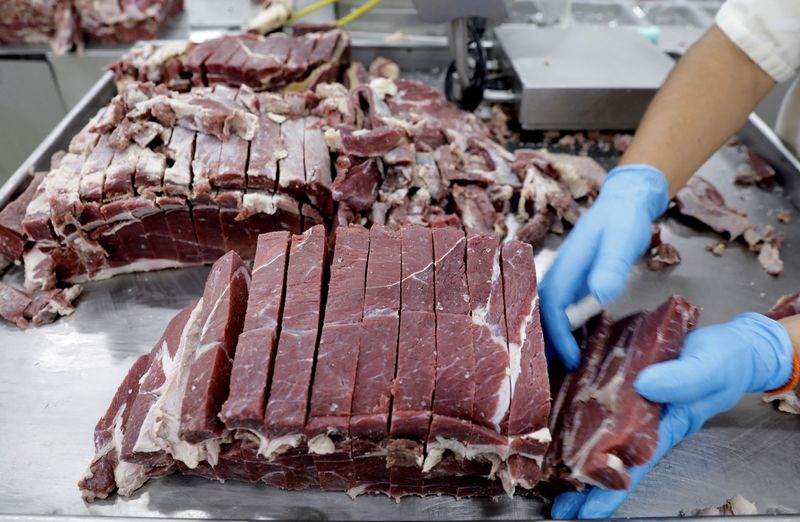China and Brazil to try out beef traceability plan
BEIJING (Reuters) - China, the world's largest beef importer and Brazil, the biggest supplier, will set up a pilot scheme as part of efforts to make beef production more sustainable, state media said on Wednesday.
Beef is regarded as one of the most emissions-intensive forms of food, especially in Brazil where food production has been associated with clearance of tracts of carbon-trapping forest.
China's State Administration for Market Regulation has met with Brazilian institutions to discuss methods to ensure the transparency of the beef supply chain and the establishment of a cross-border traceability platform, CCTV said. It did not provide further information on timing.
The countries agreed a unified global standard would be central to the traceability system, which would also help to combat counterfeit beef.
Chinese companies have long prioritised price over sustainability, but are slowly gaining interest in greener supplies.
In contrast to sustainability efforts in the West that have often been consumer-led, China's shift is driven first of all by policy signals as well as investor pressure.
Traders and sustainability analysts, however, say higher costs and logistical challenges are likely to limit demand for sustainable goods.
Cattle ranching in Brazil is linked to nearly 24% of global annual tropical deforestation and approximately 10% of total global greenhouse gas emissions, according to environmental organisation The Nature Conservancy.
Cattle pasture is the most common initial use for deforested areas in the Amazon (NASDAQ:AMZN ) and neighboring Cerrado savanna, a practice that faces strict legal limits but continues illegally.
China imported 2.74 million metric tons of beef in 2023, with more than 40% sourced from the South American producer, according to Chinese customs.
Source: Investing.com
